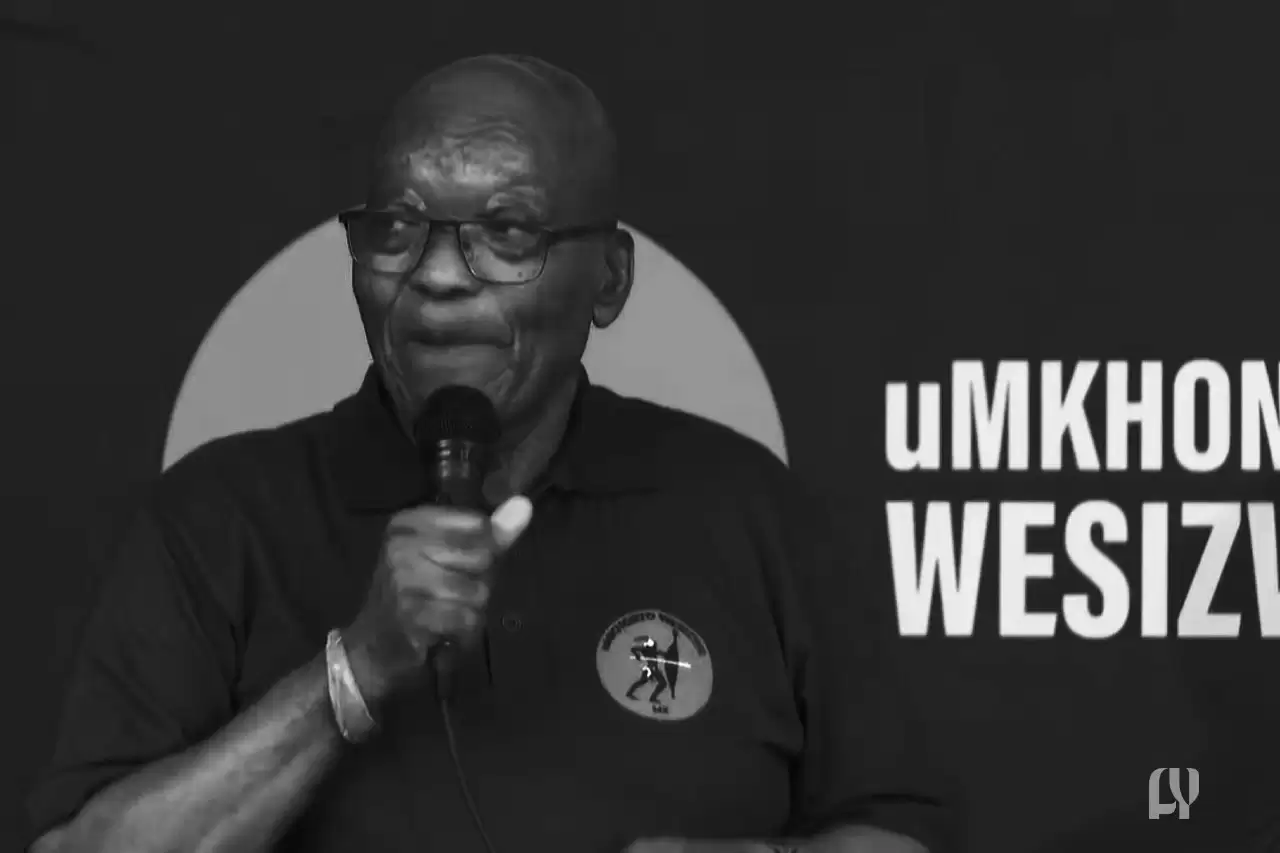Black Economic Empowerment: A Closer Look at the Elite Capture Narrative
A stark disconnect exists. The widespread narrative about Black Economic Empowerment (BEE) in South Africa differs from the harsh economic reality. This economic reality affects the vast majority of its Black citizens. Political economist Moeletsi Mbeki is a respected voice. He is often at odds with mainstream ANC thinking. He delivers a damning assessment. Black economic empowerment is not a tool for mass economic liberation.
- The Core Misconception: Ownership for the Masses?
- Black Economic Empowerment: An Investment Killer, Not a Catalyst
- The ANC’s Shift: From Liberation to Elite Enrichment
- Wealth Transfer, Not Creation: The Parasitic Dynamic
- The Original Sin: Black Economic Empowerment’s Dubious Genesis
- Corruption’s Engine: How BEE Kills Competition and Entrepreneurship
- The Entrepreneurship Emergency: South Africa’s Stalled Engine
- The Evidence of Failure: Beyond Rhetoric
- A Path Forward: Ditching the Mirage
- The Harsh Reality Check
Instead, it is a mechanism enriching a politically connected elite. It stifles genuine entrepreneurship. It cripples the nation’s economic potential. His analysis cuts through decades of policy rhetoric. He exposes a system he argues was fundamentally flawed from the start. This framework has delivered precisely the opposite of its promised outcomes. This report is not merely an academic critique. It is a warning about a policy. This policy, far from healing apartheid’s economic wounds, has become a primary engine of corruption and stagnation.
The Core Misconception: Ownership for the Masses?
Mbeki shatters the foundational myth underpinning much public discourse on BEE. “It is a misconception in South Africa. Many believe Black Economic Empowerment places the economy in the hands of the majority of Black people.” He states this unequivocally in a recent interview with the Palatable Politics podcast. This belief, he contends, is dangerously naive and ignores the fundamental mechanics of capitalism globally. “A small number of people own the means of production in a capitalist economy. It is irrelevant whether they are white or black,” Mbeki explains.
He draws parallels internationally: “The English people do not control the economy of England. A few capitalists control the economy of England. The same in France or the Netherlands.” The reality, he stresses, is that in these developed nations, most citizens, regardless of race, are employees, not owners. South Africa, he argues, is no different. “You can’t have 80% of the population become capitalists. That is not a capitalist country.” Mbeki asserts that the very premise that BEE transform the majority into owners is economically illiterate. It sets the policy up for inevitable failure and public disillusionment. This fundamental misunderstanding, Mbeki believes, is the root cause of the policy’s negative trajectory.
Black Economic Empowerment: An Investment Killer, Not a Catalyst
Far from attracting the investment South Africa desperately needs, Mbeki argues that black economic empowerment actively repels it. He lays out a clear economic argument. Many international and domestic companies have the capital. They also have the desire to invest in South Africa. Yet, the BEE requirement is a hindrance. It often demands significant ownership stakes or management control be ceded without proportional value return. This makes such investment unattractive. “Many companies have the desire and money to invest in the country. Still, they are unwilling to give away part of their business for no benefit,” he states plainly. Capital, Mbeki reminds us, is inherently mobile. Capitalists can invest anywhere in the world.
South Africa can’t afford to continue chasing the BEE mirage. The nation needs policies focused on building a genuinely competitive, open, and innovative economy.
BEE taxes capital as it arrives, which makes South Africa a bad place to invest. This “tax” isn’t a fiscal levy. It is the cost imposed by BEE compliance. There is a mandatory dilution of ownership or profit-sharing demanded before investment even begins. The consequence is stark: Capital flows to countries with more predictable, less onerous investment frameworks. South Africa is left perpetually starved of the private sector dynamism essential for growth and job creation. The policy designed to empower instead acts as a significant barrier to the very economic activity it purports to foster.
The ANC’s Shift: From Liberation to Elite Enrichment
Mbeki traces a deliberate shift in the ANC’s economic strategy post-1994. The party initially framed its policies as necessary redress for apartheid’s economic injustices. This included Black economic empowerment. Mbeki contends the primary goal rapidly evolved. After gaining power, the ANC focused on developing its core voter constituency. It targeted the African middle class. They implemented policies like BEE, preferential procurement, and employment equity, he explains in a recent BusinessTech interview. He argues that the focus was not on uplifting the broad masses of the poor. Instead, it was about cultivating a specific, politically useful segment: the emerging Black middle class.

Crucially, Mbeki believes that the real beneficiaries are even fewer. He states, “These policies primarily serve to enrich ‘a small political elite within the ANC.'” The evidence, he suggests, is palpable in the ANC’s declining electoral fortunes. He said the evidence that such policies are not working for all is evident in the ANC’s electoral decline.” Disillusionment is growing among the youth and the poor. They see little tangible benefit. This signals a profound failure of the policy to deliver on its broad promises. The gap between rhetoric and reality has become too wide for the ruling party to ignore.
Wealth Transfer, Not Creation: The Parasitic Dynamic
Perhaps Mbeki’s most scathing critique is that black economic empowerment does not generate new wealth. It merely redistributes existing wealth, often destructively. “BEE does not create new wealth. It does not create new entrepreneurs,” he asserts with conviction. Instead, the policy framework, as implemented, incentivises different behaviour. It encourages individuals and entities to exploit existing companies. At the same time, they exploit the state. The focus shifts away from building new businesses and innovating. It moves towards securing access to state contracts (tenders) or demanding equity stakes in established firms through BEE compliance. This results in a class of “tenderpreneurs.” They are middlemen who add little productive value. They profit from connections and the complex BEE requirements. As Mbeki bluntly states, “If you get money for being a tenderpreneur, you are only a middleman. You do not produce anything. This obstructs the emergence of real entrepreneurs.” This dynamic is parasitic. It extracts resources without contributing to the productive base of the economy. Ultimately, it makes South Africa poorer, not richer.
The Original Sin: Black Economic Empowerment’s Dubious Genesis
Mbeki challenges the very origin story of BEE. He disputes the common perception that it was an ANC policy born from the struggle for economic justice. Instead, he alleges the policy was conceived by the departing National Party (NP) government. “The ANC, from the 1950s, was a multiracial organisation. It, therefore, did not have a policy that favoured a particular race,” he argues. He claims the NP sought a negotiated exit and wanted to embed corruption. They “came up with BEE and used greed to convince certain ANC leaders to accept ‘free money’.”
This, Mbeki declares, is the policy’s fatal flaw: “It is a corrupt system, born from original sin. It thrives on the original sin of corruption and is one of the main drivers of corruption.” He views BEE not as a solution to corruption but as its primary architect and enabler. This foundational corruption, he argues, permeates the entire system, making genuine economic transformation impossible. The policy was intended as redress. Still, it was inherently corrupt from its beginning. It was designed to benefit a select few at the expense of the many.
Corruption’s Engine: How BEE Kills Competition and Entrepreneurship
Mbeki directly links the pervasive corruption crippling South Africa. It is exemplified by scandals like the Tembisa Hospital. He attributes it to the Black Economic Empowerment framework. “He argued that the corruption at places like the Tembisa Hospital would not have happened. He stated that this could be avoided if there were no BEE and there was open competition.” His reasoning is clear. BEE’s emphasis on “black preference” often leads to non-competitive set-asides. These are sometimes interpreted as complex scoring systems. They rank ownership over competence and create environments with minimal genuine competition.
The popular narrative of Black economic empowerment as the engine of mass Black prosperity is a powerful myth. It is a myth nonetheless.
“As there is no competition because of the so-called black preference, you have an embedded corrupt system,” he explains. Without the pressure of open tenders and the scrutiny of competitive bidding, collusion and kickbacks flourish. This lack of competition, he stresses, is devastating for genuine entrepreneurship. “This kills the emergence of real entrepreneurs in South Africa who are needed to modernise the economy and create employment.” Real entrepreneurs build businesses based on merit and innovation. They focus on efficiency. They can’t thrive in a system rigged to reward political connections and BEE compliance. Such a system prioritises BEE over business acumen and value creation.
The Entrepreneurship Emergency: South Africa’s Stalled Engine
South Africa’s crippling unemployment rate, particularly among the youth, is a national emergency. Mbeki identifies Black economic empowerment as a significant, though often unacknowledged, contributor to this crisis. The policy, he argues, actively discourages the very behaviour needed to solve it: building new, productive businesses. The plan makes it more lucrative to become a “tenderpreneur” or secure a BEE equity stake in an existing firm. This devalues the hard, risky work of true entrepreneurship.
Furthermore, he believes the ANC’s post-1994 focus on expanding the public sector, partly to absorb unemployment, has further skewed incentives. He emphasises that there is an urgent need to cultivate new entrepreneurs from historically disadvantaged populations. He believes that this is discouraged by policies that favour public sector employment and reliance on existing structures. The state becomes the preferred employer. Parasitic BEE compliance becomes the preferred path to wealth. Both stifle the private sector dynamism needed to generate the millions of new jobs South Africa needs. The result is an economy stuck in a low-growth, high-unemployment trap.
The Evidence of Failure: Beyond Rhetoric
Mbeki points to tangible proof that Black economic empowerment has failed to meet its core promises for the majority. The inequality in South Africa is persistent and massive. South Africa is consistently ranked among the most unequal countries globally. This is the most glaring indicator. Black unemployment remains stubbornly high, especially among the youth. Meanwhile, a small Black elite has grown significantly wealthier. This situation speaks volumes. The ANC’s electoral support is declining in townships. Young people are particularly disillusioned.
They feel disappointed with the lack of economic progress despite decades of BEE policy. Corruption is rampant and often facilitated by BEE-related tender processes. It shows a massive drain on public resources. These resources have been used for development. Private investors show continued reluctance. This hesitation is especially noticeable in job-creating manufacturing and large-scale industry. The policy chills capital. These are not abstract theories. They are measurable and observable outcomes. The outcomes come from a policy framework that prioritises elite enrichment over broad-based economic growth.
A Path Forward: Ditching the Mirage
Mbeki does not advocate for simply scrapping redress efforts. He argues for a fundamental shift in strategy. The focus must move away from complex, corruption-prone ownership transfers and towards policies that genuinely foster entrepreneurship and skills development. This means:
- Simplifying BEE: Drastically reducing the bureaucratic burden and complexity, focusing on outcomes like skills transfer and supplier development rather than rigid ownership quotas.
- Prioritising Competition: Ensuring all tenders, especially state procurement, are genuinely open and competitive, with BEE scoring being a minor factor rather than a barrier. This combats corruption and improves value for money.
- Investing in Real Entrepreneurship: Creating a genuinely enabling environment for new businesses through improved infrastructure (especially reliable electricity and transport), reducing red tape, ensuring property rights, and providing accessible, practical business development support, not just equity handouts.
- Focus on Education & Skills: Addressing the foundational crisis in basic education and expanding practical vocational and tertiary training aligned with market needs. Real economic power comes from skills and productivity, not just ownership certificates.
- Stopping the “Tenderpreneur” Culture: Enforcing strict anti-corruption measures and prioritising performance and value in all state contracts.
The Harsh Reality Check
The popular narrative of Black economic empowerment as the engine of mass Black prosperity is a powerful myth. It is a myth nonetheless. Moeletsi Mbeki’s analysis, grounded in decades of economic observation and political insight, presents a compelling and deeply concerning different reality. The policy, he argues, was conceived in compromise. It was implemented to enrich a narrow political elite. It has become a primary driver of corruption. It has also stifled competition and discouraged the real entrepreneurship South Africa desperately needs. It has failed to create significant new wealth for the majority. Opportunities for the majority were not created. Instead, there was a transfer of existing wealth into the hands of a connected few. The signs of this failure are everywhere. High unemployment, rampant corruption, lack of investment, and persistent inequality surround us.
South Africa can’t afford to continue chasing the BEE mirage. The nation needs policies focused on building a genuinely competitive, open, and innovative economy. Success should be based on merit, productivity, and value creation. It should not rely on political connections or complex compliance with a policy that has become synonymous with “original sin”. The focus must shift decisively. It should move away from enriching the few through ownership transfers. Instead, it should empower the many through skills, opportunity, and a level playing field.

South Africa can unlock the entrepreneurial energy and investment needed to create jobs only through decisive actions. This will help reduce inequality. It is also crucial for achieving the economic transformation promised so long ago. The time for confronting the lies about Black economic empowerment is now. The future prosperity of millions depends on it.
We must reckon with the true impact of Black economic empowerment. This is the only path towards an economy that works for all South Africans. It should not just favor a privileged few. We must acknowledge the evidence. It demands we move beyond the Black Economic Empowerment myth. Instead, we should embrace policies that truly foster inclusive growth and opportunity. The stakes for South Africa’s economic future could not be higher.



